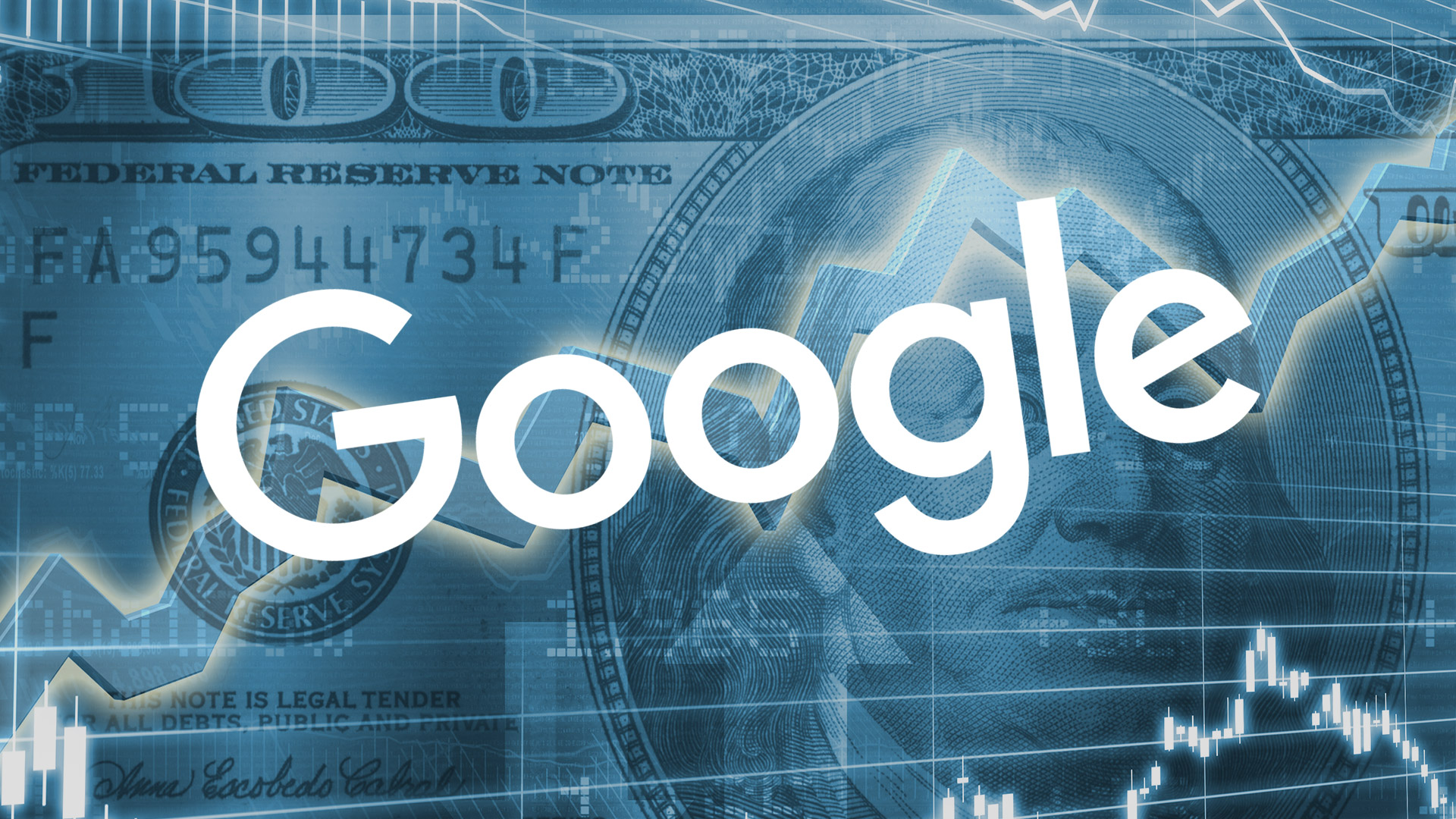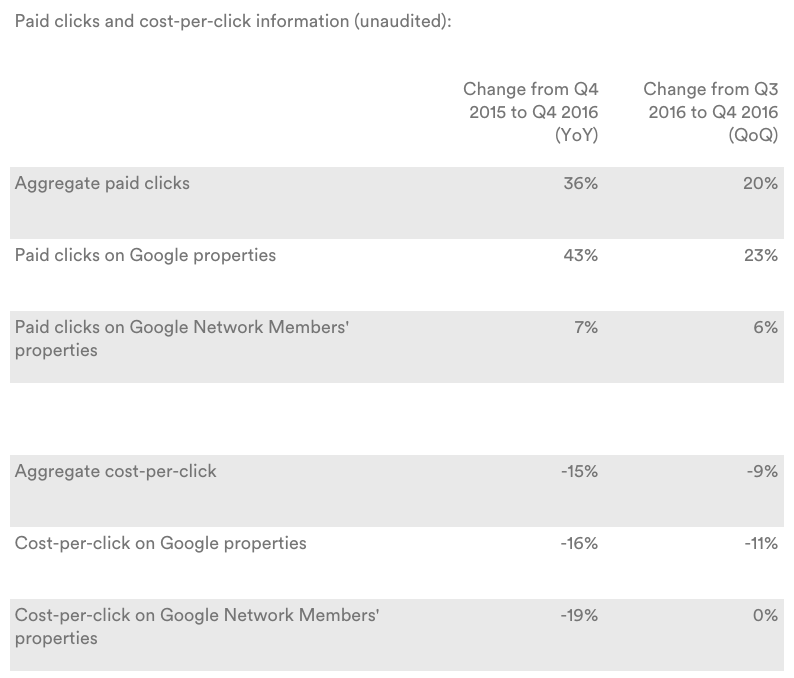Google: $26 billion in Q4 revenue beats expectations but earnings down
Total company revenues for 2016 were $90.3 billion vs. $75 billion in 2015.

Google parent Alphabet Inc. announced financial results for the fourth quarter of last year. The company reported $26.06 billion in quarterly revenue, which was more than financial analysts had expected. However, adjusted earnings per share of $9.36 were below expectations.
Overall year-over-year revenue growth was 22 percent. Ad revenues were $22.4 billion, representing 17 percent growth. Despite these figures, the stock was down in after-hours trading.
Paid clicks were up on Google sites and network properties, 43 percent and 7 percent respectively. But CPCs were down 16 percent and 19 percent.

The company credited mobile search and video advertising with driving its top-line revenue growth.
Google reported “other revenues” growth of 62 percent to $3.4 billion. This category includes some of the hardware products that the company has developed (e.g., Pixel, Google Home). Financial analysts estimate that Google may have sold one million Pixel phones during the holiday quarter. Sales for Google Home have been estimated at between 400,000 and 500,000 units.
Alphabet has roughly $86 billion in cash and marketable securities. Total revenues for 2016 were $90.3 billion vs. $75 billion in 2015.
Notes from the earnings call:

Most of the analyst questions surrounded three areas: mobile/voice search, YouTube ads and non-ad YouTube revenue and expenses that were higher than expected.
On voice search and related monetization, Sundar Pichai said, “We are really excited about [voice search]. We expect voice to work across many different contexts: phones, homes, TVs, cars. Google Home had a very strong quarter; we’re going to invest a lot in it in 2017.”
In response to a question about Google’s search model and vulnerability to competition (read: Amazon), Pichai said, “The Google Assistant is an end-to-end thing. Users engage with us across devices throughout the day. I see more opportunity than challenge when I think of voice search.”
On the Pixel opportunity, Pichai said, “It’s important for us to work at the intersection of hardware, software and services.” He said he didn’t think that Google’s release of the Pixel phone and potential successor efforts in the future would harm the broader Android ecosystem.
On how AI may be impacting monetization across Google, Pichai says it’s definitely having a positive impact on revenues, although he cautioned that it’s early days.
Contributing authors are invited to create content for MarTech and are chosen for their expertise and contribution to the search community. Our contributors work under the oversight of the editorial staff and contributions are checked for quality and relevance to our readers. MarTech is owned by Semrush. Contributor was not asked to make any direct or indirect mentions of Semrush. The opinions they express are their own.
Related stories